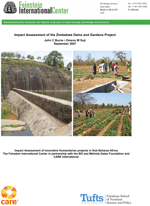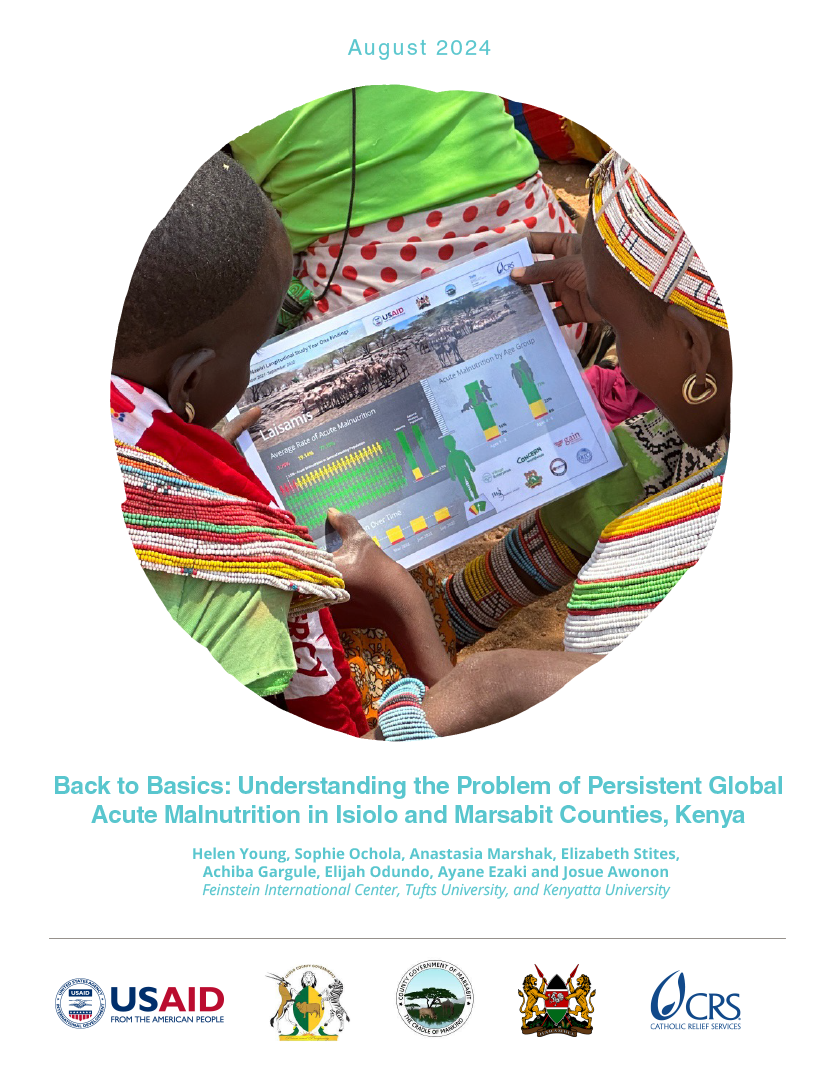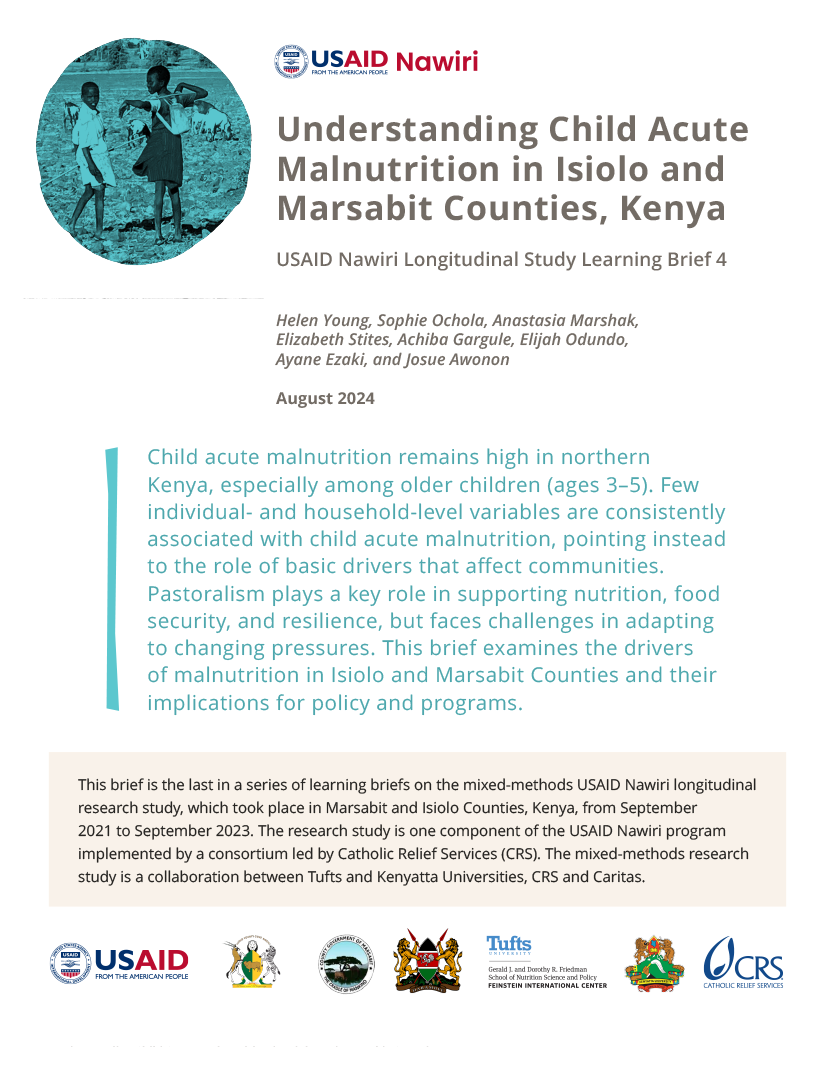This study was an impact assessment of the ‘Zimbabwe Dams and Gardens’ Project’ a community based famine prevention and mitigation intervention being implemented by CARE International in Masvingo Province, Zimbabwe. The assessment is one component of a broader applied research initiative “Impact Assessment of Innovative Humanitarian Projects in Sub-Saharan Africa” supported by the Bill & Melinda (B&M) Gates Foundation. The research which is being carried out by the Feinstein International Center (FIC, Tufts) focuses on the development and application of a participatory assessment toolkit to measure the impact of seven projects in Africa being supported by the B&M Gates Foundation under a separate grant; the “Sub-Saharan Africa Famine Relief Effort”. All seven projects have taken an integrated livelihoods approach to alleviating the immediate needs of the affected communities, and to addressing the longer term vulnerability issues resulting in famine and food insecurity.
The ‘Zimbabwe Dams and Gardens Project’ was designed to prevent and alleviate famine in two drought-prone districts of Masvingo Province. The key project components included the rehabilitation of community dams, the establishment of community gardens irrigated by the dams, the formation of savings and loan groups, and the provision of training in crop management and conservation farming. The assessment focused on measuring the impact of the dam and garden component of the project at Zipwa, one of the three communities being assisted under the initiative.
The impact assessment focused on the direct impact on the food security status, income and livelihoods of the project participants, it did not attempt to unravel the social, political or environmental impacts that might be associated with a humanitarian intervention. The assessment was carried out by CARE project staff and Government Agricultural Extension (AREX) officers affiliated with the project, and supported by researchers from the Feinstein Center. The assessment took place only six months after the project participants had started producing crops from the community garden at Zipwa. The completion of the dam and installation of the irrigation system only occurred five months before the assessment took place. Given this timeframe it was expected that the project would only have had a limited impact on the livelihoods of the participating households by the time the assessment was carried out in August 2007. To some extent the findings of the assessment confirmed this expectation, yet the results do indicate that the project has already had a significant impact on household food security, thus meeting the primary goals and objectives of the project.
Furthermore the assessment took within a context of hyper-inflation, and shortly after a failed cereal harvest. It also coincided with wide spread food shortages in the country brought about by government imposed price controls. These multiple shocks no doubt diluted the measurable impact of the project in terms of direct livelihoods benefits. Having said this, the findings suggest that the project has helped people cope with the effects of drought and inflation.
The project has contributed to a significant improvement in household food security amongst the project participants by providing them with a new source of food, a steady supply of food, and nutritionally more diverse types of food. There has also been a significant reduction in the importance of food aid to the household food basket since the project started. The sale of crops from the project garden has provided people with a new source of income, and the findings suggest that a good portion of this income is spent on food.
The project has had a noticeable impact on the income of the participating households. The new source of income provided by the project garden has compensated for this years loss of income from cereal crop sales. In this respect the project has also met its goal of alleviating or mitigating the effects of the ongoing drought. The results also show changes in the relative importance of different income sources, with the project garden being scored as the most important source of income for project participants this year. This income has enabled people to cover priority expenses such as household food purchases and school fees.
Other important benefits include the considerable time savings on water collection for vegetable irrigation and domestic use. Part of this time saved is now being allocated towards food production. Secondary data from the other communities being assisted by the project points to similar benefits as those found at Zipwa although the timing and relative importance of the different project impacts appears to differ across the three communities.
As mentioned the assessment took place well before the project could be expected to have had a major impact on the livelihoods of the participants. Nevertheless even the immediate impact has been fairly dramatic particularly in terms of the food security benefits derived from the project. Although the income benefits were less evident, it would be reasonable to expect these to become more pronounced over time. If so it could be expected that this would manifest itself in changing expenditure patterns amongst the participating households.







